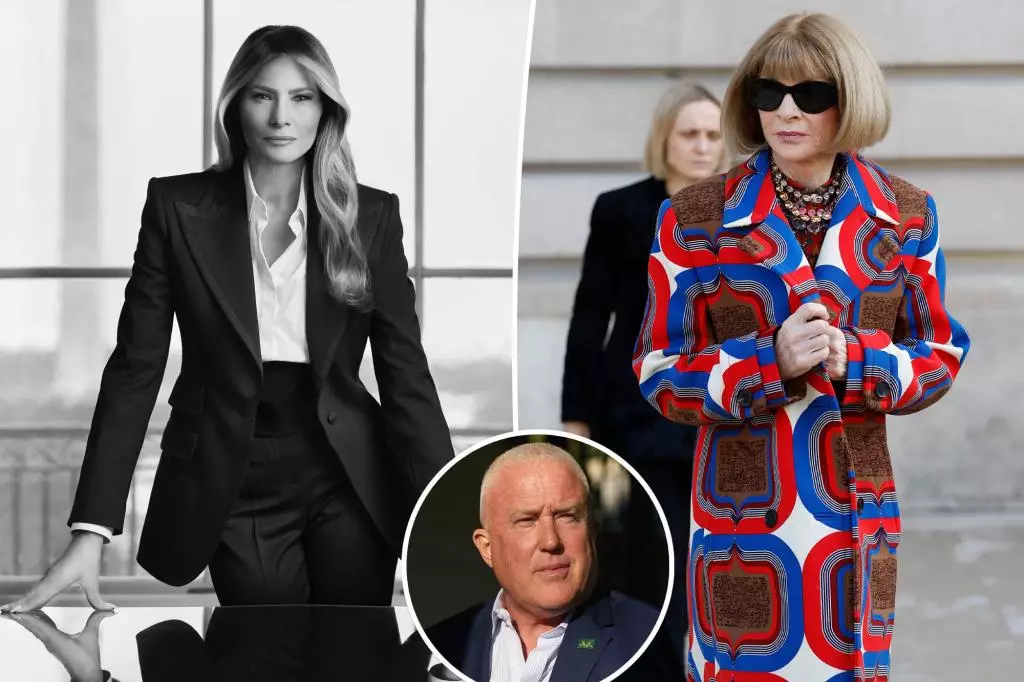The relationship between fashion and politics has always been a tightrope walk, but it seems to have reached a boiling point with recent comments directed at Melania Trump by Vogue, an influential beacon in the fashion industry. The magazine’s critique of the first lady—labeled as a scathing op-ed—has ignited a war of words, throwing a spotlight on the intersection of politics, media representation, and public perception. Melania, who has often been viewed through the lens of her husband’s controversial presidency, is catching flak once again from an industry that has been less than kind to her.
Friends and supporters of Melania Trump have rallied against Vogue, taking to social media and public platforms to denounce the magazine’s remarks. Bill White, an ally to both Melania and Donald Trump, has declared a personal boycott of the magazine, calling for others who share his admiration for the United States to do the same. His fervent defense of Melania paints her as not just a stunning figure but also a multifaceted individual who reportedly possesses both elegance and intelligence.
In its recent assessment, Vogue was merciless in its criticism, implying that Melania’s official portrait aligned more closely with her role on “The Apprentice” than as the first lady. This superficial classification reflects a broader narrative in which the fashion industry often reduces political figures to mere caricatures rather than viewing them as complex individuals. Critics suggest that such commentary is indicative of a larger trend wherein women in positions of power, especially those associated with conservative ideals, are subjected to particular scrutiny and ridicule in mainstream media.
White contrasts this portrayal with his own praises, emphasizing Melania’s role as a mother and wife. He affirms her as the “most beautiful first lady” in American history while celebrating her multilingual skills and business acumen. This apologia not only attempts to reclaim Melania’s image but also showcases the deep-seated divide between her supporters and detractors in the realm of public opinion.
Amid the Vogue controversy, Melania made headlines by expressing her disinterest in gracing the cover of such fashion magazines, despite her previous appearances in them. She voiced that her priorities extend beyond magazine covers and that her role as the first lady involves serious commitments. This stance appears to reflect a strategic withdrawal from the traditional expectations placed upon first ladies, presenting herself as someone who prioritizes duty over superficial accolades.
Conversely, there’s an insatiable appetite among critics to paint Melania as indifferent to the fashion world’s judgments. An anonymous MAGA supporter noted that the first lady is well aware that many designers refuse to dress her, suggesting an exclusionary environment that’s both disheartening and indicative of broader societal trends. This argument positions Melania as a victim of an industry that has historically marginalized voices that deviate from a standard narrative.
The dialogue surrounding Melania Trump highlights an essential truth about the modern media landscape: it often thrives on division. In our polarized climate, both supporters and opponents are quick to engage in mudslinging, perpetuating an environment that stifles nuanced discussions. Melania’s supporters take offense at the media’s seemingly gendered criticism, dubbing Vogue’s commentary as part of an orchestrated effort to deride conservative women.
Amid this tension, Melania’s supporters suggest that the vitriol directed toward her is trivial—if not laughable—arguing that if “magician” is the worst title critics can conjure, then they have chosen their battles poorly. This perspective invites a reevaluation of how the media portrays influential women and may prompt a reconsideration of the standards applied across political spectrums.
As the Vogue controversy rages on, it serves as a prompt for broader reflection on how fashion, media, and politics intersect. The firestorm ignited by Melania Trump’s image encapsulates the challenges faced by women in power—challenges exacerbated by a culture that often prioritizes sensationalism over substance. The contrasting narratives surrounding Melania force society to confront its biased perceptions of leadership and femininity in the political realm. Moving forward, it may be time for a reassessment of these dynamics to foster a more inclusive and complex understanding of all individuals who find themselves in the public eye.
